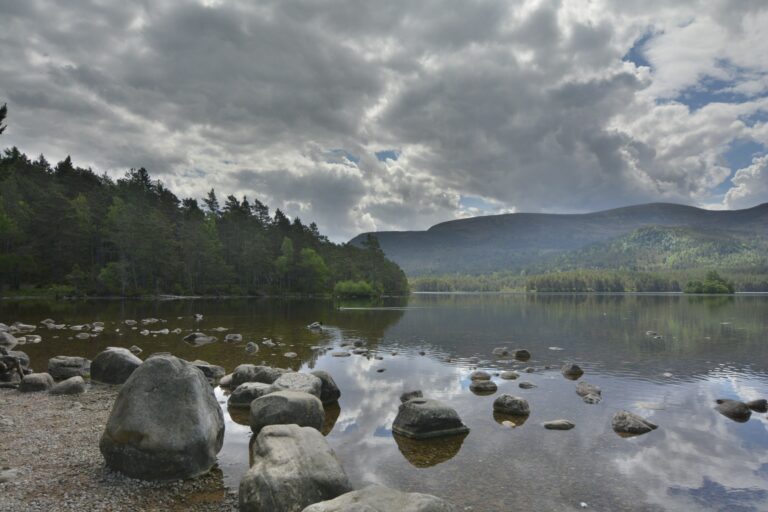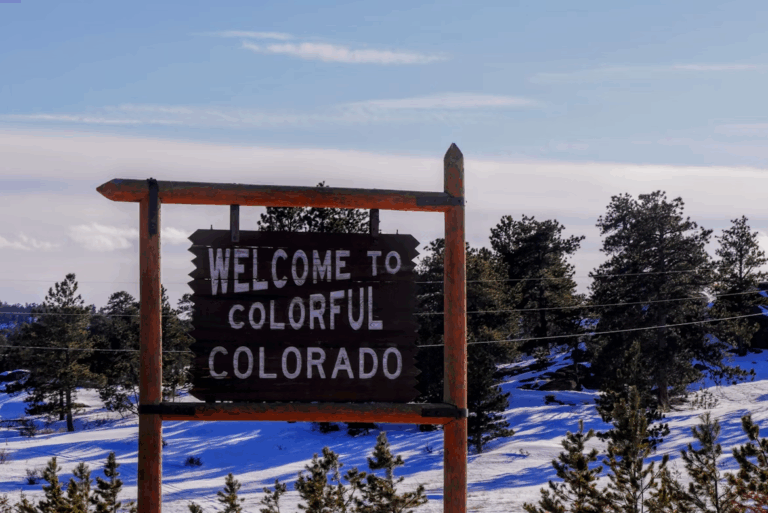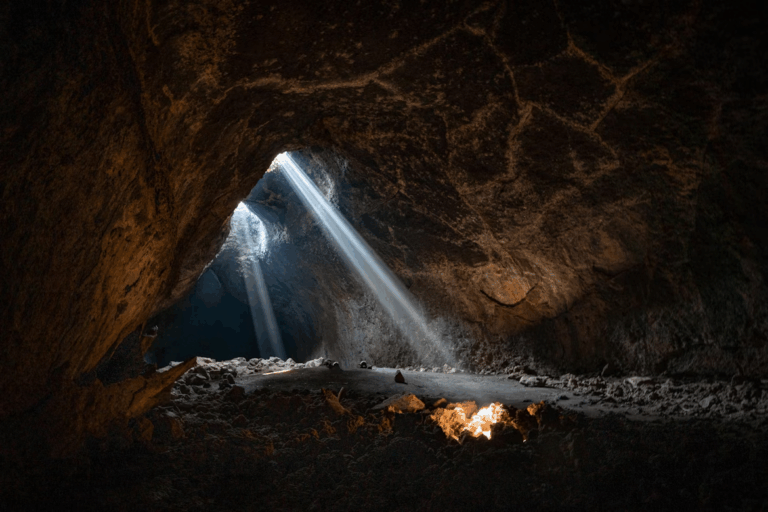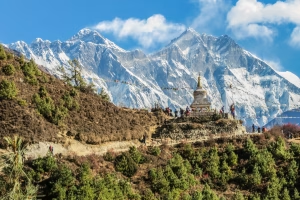Explore the Most Beautiful National Parks in the World: Wildlife, Landscapes, and Adventure That Will Leave You Speechless
National parks are some of the world’s most treasured natural wonders, offering a chance to see pristine landscapes, diverse wildlife, and untouched ecosystems. Whether you’re an adventure seeker, a wildlife lover, or someone who wants to relax in nature, national parks give you a rare opportunity to experience the wild at its best. Here’s a list of the 10 most stunning national parks every nature enthusiast should visit.
How We Selected This List
This ranking is based on 2025 park data from the National Park Service, official conservation sources like the World Wildlife Fund, UNESCO World Heritage designations (UNESCO), visitor popularity, and expert travel recommendations (Lonely Planet). We considered biodiversity, unique landscapes, wildlife density, and opportunities for outdoor activities to determine the most remarkable national parks for travelers, adventurers, and nature enthusiasts.
10. Chobe National Park – Botswana

Location: Northern Botswana
Location: Northern Botswana
Size: 4,500 square miles
Established: 1968
Chobe National Park is famous for its large elephant population and is one of Africa’s best wildlife reserves. Located near the confluence of Botswana, Namibia, Zambia, and Zimbabwe, it offers a unique ecosystem where savannas, wetlands, and woodlands meet.
Why it’s fascinating:
Northern Botswana and the Chobe region hold some of Africa’s largest elephant populations; Botswana as a whole had about 130,000 elephants in recent surveys, and counts vary by year and method (Elephants Without Borders 2024 report). The park’s diverse habitats also host lions, leopards, and a rich variety of bird species.
Things to do:
- Safari Drives: Take a safari in the park to view elephants and other wildlife.
- Boat Safaris: Cruise along the Chobe River for fantastic birdwatching opportunities.
- Fishing: The Chobe River is also a great spot for fishing, particularly for tigerfish.
Quick Tip: Visit from May to October for the best wildlife sightings.
9. Cinque Terre National Park – Italy

Location: Liguria, Italy
Size: 3,860 hectares (about 9,500 acres)
Established: 1999
Cinque Terre National Park is a small but incredibly picturesque national park along the Italian Riviera. The park is famous for its colorful cliffside villages: Monterosso, Vernazza, Corniglia, Manarola, and Riomaggiore, and its stunning coastal views.
Why it’s fascinating:
Cinque Terre is a UNESCO World Heritage site, known for its terraced vineyards and preserved coastal landscapes. The park’s five villages are connected by scenic hiking trails that offer panoramic views of the Mediterranean Sea (Official Cinque Terre Park site).
Things to do:
- Hiking: Hike along the Sentiero Azzurro (Blue Trail) to connect the five villages.
- Exploring Villages: Wander through the charming streets of the cliffside villages.
- Boating: Take a boat trip along the coast to see the villages from the sea.
Quick Tip: Hike early in the morning to avoid crowds.
8. Serengeti National Park – Tanzania
Location: Northern Tanzania
Size: 5,700 square miles
Established: 1951
Serengeti National Park is one of the most famous national parks in Africa, largely due to the Great Migration, where roughly 1.5 million wildebeest, plus hundreds of thousands of zebras and gazelles, migrate across the plains (National Geographic Great Migration summary). The park is also home to the Big Five, making it an exceptional safari destination.
Why it’s fascinating:
The Serengeti is known for its vast plains and abundance of wildlife. It’s one of the best places to experience the Great Migration, where millions of animals travel in search of food and water.
Things to do:
- Safari: Go on a safari to spot the Big Five and witness the Great Migration.
- Hot Air Balloon Ride: Take a hot air balloon ride for a bird’s-eye view of the Serengeti’s stunning landscapes.
- Cultural Visits: Visit the nearby Maasai villages to learn about the local culture and traditions.
Quick Tip: Visit from June to October for peak migration sightings.
7. Fiordland National Park – New Zealand
Location: South Island, New Zealand
Size: 3.2 million acres
Established: 1952
Fiordland National Park is one of the most remote and wild places in New Zealand, known for its deep fjords, towering cliffs, and dense rainforests. Milford Sound, one of the most famous fiords, is a popular destination for cruises, where visitors can enjoy breathtaking views of waterfalls and towering peaks.
Why it’s fascinating:
Fiordland is home to the threatened Fiordland tokoeka kiwi; whales, including humpback and sometimes southern right whales, are occasional visitors to the fiords rather than resident species (DOC page on tokoeka kiwi). The park offers spectacular scenery and rare wildlife.
Things to do:
- Cruises: Take a boat tour through Milford Sound to see the fiords up close.
- Hiking: Explore the Kepler Track or Routeburn Track for incredible views of the fjords.
- Wildlife Viewing: Look for the rare kiwi bird and other endemic species.
Quick Tip: For wildlife spotting, bring binoculars and visit early in the day.
6. Yosemite National Park – United States
Location: California, USA
Size: 750,000 acres
Established: 1890
Yosemite National Park is one of the most famous national parks in the U.S., known for its dramatic granite cliffs, giant sequoias, and stunning waterfalls. The park features iconic landmarks like El Capitan, Half Dome, and Yosemite Falls. Yosemite Falls is one of North America’s tallest waterfalls, with a total drop of about 2,245 feet (740 m) (NPS Yosemite Falls facts page). It’s a paradise for rock climbers, photographers, and outdoor enthusiasts.
Why it’s fascinating:
Yosemite is recognized as a UNESCO World Heritage site, and its unique geological formations make it a destination for nature lovers and adventurers. The park’s iconic granite peaks and waterfalls have inspired artists and photographers for generations.
Things to do:
- Rock Climbing: Yosemite is a world-renowned destination for rock climbing, especially the famous El Capitan.
- Hiking: Explore the Yosemite Valley or challenge yourself with the strenuous Half Dome hike.
- Photography: Capture the beauty of Yosemite Falls, El Capitan, and the serene landscapes of the valley.
Quick Tip: Visit in May for peak waterfall flows.
5. Great Barrier Reef Marine Park – Australia
Location: Queensland, Australia
Size: 133,000 square miles
Established: 1975
The Great Barrier Reef is the world’s largest coral reef system and a UNESCO World Heritage site. It is home to thousands of species of fish, coral, and other marine life, making it a must-visit destination for snorkelers and divers. Parts of the reef can appear in satellite and astronaut photos, but visibility depends on weather and light; recent mass bleaching events have impacted reef health (Great Barrier Reef Marine Park Authority facts page).
Why it’s fascinating:
The reef spans more than 2,300 kilometers and houses thousands of species, including sea turtles, sharks, and over 1,500 species of fish. It is one of the most biologically diverse ecosystems on the planet.
Things to do:
- Snorkeling and Diving: Explore the underwater world with guided tours.
- Boating: Take a boat tour for a unique view of the reef and its surrounding islands.
- Wildlife Watching: Spot dolphins, sea turtles, and rays during your visit.
Quick Tip: Book guided snorkeling tours for safe coral interaction.
4. Torres del Paine National Park – Chile
Location: Patagonia, Chile
Size: 1,818 square miles
Established: 1959
Torres del Paine National Park is a destination of rugged beauty, with towering granite peaks, turquoise lakes, and vast glaciers. Its iconic Torres del Paine towers offer breathtaking views.
Why it’s fascinating:
One of the world’s most popular trekking destinations, Torres del Paine offers landscapes from dry steppes to snow-capped Andes peaks. Visitors can spot wildlife like guanacos, condors, and pumas. The W Trek is a famous challenging route.
Things to do:
- Hiking: Try the W Trek or shorter scenic hikes.
- Wildlife Viewing: Watch guanacos, foxes, and pumas.
- Kayaking: Explore lakes and glaciers from the water.
Quick Tip: Start hikes early to maximize daylight and wildlife spotting.
3. Kruger National Park – South Africa
Location: Mpumalanga and Limpopo provinces, South Africa
Size: 7,523 square miles
Established: 1926
Kruger National Park is one of Africa’s largest game reserves and home to the Big Five, plus hundreds of other species of mammals, birds, and reptiles.
Why it’s fascinating:
Kruger is renowned for its excellent safari opportunities and high wildlife density. Visitors can enjoy self-drive and guided tours for a full safari experience.
Things to do:
- Safari Tours: Spot the Big Five with a guide.
- Bird Watching: Over 500 bird species make this a paradise.
- Night Safaris: Discover nocturnal wildlife.
Quick Tip: Dawn and dusk drives are ideal for animal sightings.
2. Banff National Park – Canada
Location: Alberta, Canada
Size: 2,564 square miles
Established: 1885
Banff National Park is nestled in the Canadian Rockies, known for snow-capped peaks, pristine lakes, and abundant wildlife, including grizzly bears, mountain goats, and elk.
Why it’s fascinating:
Canada’s oldest national park offers glaciers, alpine meadows, and rocky peaks. Its UNESCO World Heritage status highlights its ecological and natural significance.
Things to do:
- Hiking: Trails like Lakeshore Trail at Lake Louise are very popular.
- Skiing/Snowboarding: Winter sports enthusiasts flock to the Rockies.
- Wildlife Viewing: Spot elk, moose, and wolves along the Bow Valley Parkway.
Quick Tip: Visit turquoise lakes early in the morning for the best photos.
1. Yellowstone National Park – United States
Location: Wyoming, Montana, and Idaho, USA
Size: 2.2 million acres
Established: 1872
Yellowstone is iconic for its geothermal features and abundant wildlife. The park has over 10,000 geothermal features and mammals including bison, grizzly bears, wolves, and elk (NPS Yellowstone hydrothermal overview).
Why it’s fascinating:
Yellowstone sits atop a dormant supervolcano, and its combination of geothermal activity and very high mammal diversity makes it unique.
Things to do:
- Wildlife Watching: Regular sightings of bison, wolves, and bears.
- Hiking: Trails like Mount Washburn and Fairy Falls offer close-up views of geothermal features.
- Photography: Capture the vibrant colors of Grand Prismatic Spring and Yellowstone Lake.
Quick Tip: Visit early morning for wildlife and soft lighting.
Conclusion – Discover the Planet’s Natural Wonders
National parks are more than natural sanctuaries; they preserve biodiversity and give visitors a chance to experience Earth’s beauty. From Yellowstone’s geothermal landscapes to the Great Barrier Reef’s underwater world, these parks showcase our planet’s incredible diversity. Whether you’re an adventurer, photographer, or simply love nature, these 10 parks provide unforgettable experiences.







